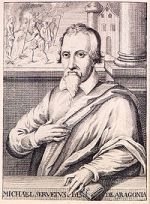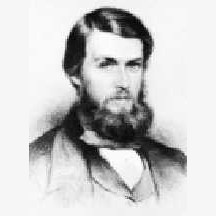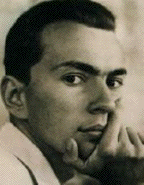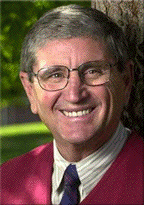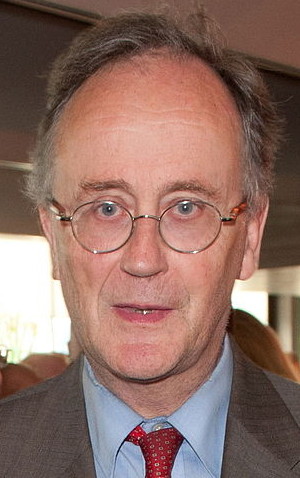This Week in Freethought History (September 29-October 5)
Here’s your week in Freethought History. This is more than just a calendar of events or mini-biographies – it’s a reminder that, no matter how isolated and alone we may feel at times, we as freethinkers are neither unique nor alone in the world.
Last Sunday, September 29, but in 1511, Spanish theologian and physician Michael Servetus was born. A Renaissance humanist and theologian as well as a physician, he was the first to correctly describe the pulmonary function of blood circulation. Servetus studied law at Toulouse and medicine in Paris. But by 1530 Servetus bought into the theology of the 4th century theologian Arius, which denies the Trinity for the obvious reason that it is found nowhere in the Bible. Denying the Trinity (Arianism) necessarily means denying the divinity of Jesus. As brilliant as he was, in April 1553 Servetus was arrested and imprisoned. He escaped in June, intending to hide out in Italy, but passed through Geneva, where John Calvin was waiting for him. He was thrown into “… an atrocious dungeon with no light or heat, little food, and no sanitary facilities.” On 27 October 1553, sentence was carried out. William Osler, the father of modern medicine, described it thus:[I]t is said that he looked like the Christ in whose name he was bound. Around his waist were tied a large bundle of manuscript and a thick octavo printed book. The torch was applied, and as the flames spread to the straw and sulphur and flashed in his eyes, there was a piercing cry that struck terror into the hearts of the bystanders. The faggots were green, the burning was slow, and it was long before in a last agony he cried again, “Jesu, thou Son of the eternal God, have mercy on me!”
Though a believer, Servetus had dared to doubt the prevailing orthodoxy – that is, he had expressed an opinion – and he had been killed for it. He was only 42 years old.
Last Monday, September 30, but in 1452, the first book printed with moveable metal type came off the press invented by Johann Gutenberg in Mainz, Germany. That first book was a Latin Bible. Of the 47 surviving copies, the finest known was acquired by the Library of Congress and is still on display. Most Christians in the world today still take the greater portion of the Bible literally, so such biblical criticism as Thomas Paine’s Age of Reason and Robert Ingersoll’s Some Mistakes of Moses are as relevant today as they were when they were written. Many Christians still revere and promote the Ten Commandments, yet no civilized society makes crimes of eight of them. Therefore, to say the Bible is useful in a moral sense is as laughable as promoting it as history! Like all holy books, the Bible was written to persuade and to indoctrinate. And what a marvelous method was the scientific invention of printing for spreading a “holy book” far and wide! Printing was perhaps the single most important invention for human progress. So why didn’t God think of it? Last Tuesday, October 1, but in 1847, English Atheist-turned-Theosophist Annie Besant was born. At age 19, she was married off to the Rev. Frank Besant, but his narrow views conflicted with her independent spirit, so he ordered her to leave – which she did with two children and a strong social conscience. At a radical periodical called the National Reformer, Besant found a kindred spirit in Charles Bradlaugh. During the next few years she wrote many articles on religion and women’s rights. Referring to Paul’s advice (I Corinthians) that “it is better to marry than to burn,” Besant wrote, “This coarse and insulting way of regarding woman, as though they existed merely to be the safety-valves of men’s passions, and that the best men were above the temptation of loving them, has been the source of unnumbered evils.” On religion, “The position of the atheist is a clear and reasonable one,” wrote Besant. “What you tell me about your God is self-contradictory and is therefore incredible. I do not deny ‘God,’ which is an unknown tongue to me. I do deny your God, who is an impossibility. I am without God.” Last Wednesday, October 2, but in 1832, British anthropologist Edward Burnett Tylor, regarded as the father of cultural anthropology, was born. Tylor’s 1865 Researches into the Early History of Mankind first proposed that Animism is the basis for all religious systems, and that therefore all religion has a natural rather than a supernatural origin. His most famous work, Primitive Culture (1871), was influenced by Darwin’s theory of biological evolution. In that same year, Tylor was elected a Fellow of the Royal Society. He published a pioneering book on Anthropology in 1881 and, although he never attended a university as a student, Tylor became professor of anthropology at Oxford from 1896 to 1909. He was knighted in 1912. In his writing and teaching career Tylor further developed his theory of Animism, in which he proposes that everything has a soul, not just living things, and that there is an upward evolutionary relationship between primitive and modern cultures, without a supernatural element. Like Sir James George Frazer and others, Sir Edward Burnett Tylor never directly admitted his Rationalism, but there was no need, and perhaps some danger of losing his position. Last Thursday, October 3, but in 1925, American writer Gore Vidal was born. He grew up near Washington, DC, in the house of his blind grandfather, the populist Democrat, Senator Thomas Pryor Gore of Oklahoma. After receiving encouraging reviews on his first novel in 1946, he published more novels, branched out into theater, film and television, and piled up an impressive list of credits: the film Myra Breckinridge (1968); the novels Julian (1964), Creation (1981), Lincoln (1984), Empire (1987), an essay collection called United States (1993), the autobiographical Palimpsest (1995), and Dreaming War: Blood for Oil and the Cheney-Bush Junta (2002). As a self-described “born-again atheist,” Vidal wrote in 1992,Yesterday, October 4, but in 1997, a group calling themselves the Promise Keepers gathered on the Mall in Washington DC. Promise Keepers, or PK, was founded in 1990 by (then) 50-year-old football coach Bill McCartney and was been led by the same man until 2003. The Promise Keepers’ extreme right-wing agenda includes opposition to equal rights for women and a belief not only that feminism is the root of all social evils in the US, but that male dominated-households and bible-based legal reform are the remedy. When the PK speaks of “taking responsibility” in a marriage, what they mean is taking control. Promise Keepers openly calls for wives to “submit” to their husbands. It may go without saying that this bible-based organization is homophobic: its founder considers homosexual behavior “an abomination of Almighty God.” The PK leaders claim the organization is religious rather than political, but choosing the Mall in the nation’s capital for a gathering-place seems to belie that claim. And Promise Keepers is not a new idea – it is the same old idea: keep some people down (women, gays, non-believers) and you’ll keep yourself up. All it takes is a reversal of legal, social and civil rights gains! Today, October 5, but in 1946, English historian of antiquity and educator Robin Lane Fox was born. Lane Fox has written acclaimed studies of Alexander the Great and Ancient Macedon, Christianity and Paganism and the Bible in history. He was historical advisor to Oliver Stone’s 2004 epic film Alexander. Works by Robin Lane Fox include Alexander the Great (1974), Pagans and Christians (1986), The Classical World: An Epic History from Homer to Hadrian (2005) and Travelling Heroes: Greeks and Their Myths in the Epic Age of Homer (2008). Lane Fox presented a TV version of Travelling Heroes on BBC Four in 2010. In the preface to The Unauthorised Version: Truth and Fiction in the Bible (1991) Robin Lane Fox says,In the First Amendment to the Constitution, the Founders made it clear that this was not to be a sky-god nation with a national religion like that of England, from whom we had just separated. … This separation was absolute in our original Republic. But the sky-godders do not give up easily… The original gentlemen’s agreement between Church and State was that We the People (the State) will in no way help or hinder any religion while, absently, observing that as religion is a good thing, the little church on Elm Street won’t have to pay a property tax. No one envisaged that the most valuable real estate at the heart of most of our old cities would be tax exempt, as churches and temples and orgone boxes increased their holdings and portfolios. The quo for this huge quid was that religion would stay out of politics and not impose its superstitions on Us the People. The agreement broke down years ago.
The Unauthorized Version is a historian’s view of the Bible. It is a book about evidence and historical truth, not about faith. It is unauthorized because it addresses questions which the Bible itself obscures: its authors, historical growth and historical truth. It is not an unauthorized version because other people have authorized their own version and wish to suppress the truth in mine. Those for whom the Bible is a book of faith wish to discover the truth, too. I write as an atheist, but there are Christian and Jewish scholars whose versions would be far more radical than mine. They will find this historian’s view conservative, even old-fashioned, but there are times when atheists are loyal friends of the truth.
Other birthdays and events this week—
October 2: The “father of town planning,” Scottish biologist Sir Patrick Geddes, was born (1854).
October 2: British inorganic chemist and Nobel Laureate Sir William Ramsay was born (1852).
October 5: Irish musician and humanitarian Bob Geldof was born (1954).
October 5: British writer John Addington Symonds was born (1840).
October 5: The most famous French Encyclopedist, Denis Diderot, was born (1713).
We can look back, but the Golden Age of Freethought is now. You can find full versions of these pages in Freethought history at the links in my blog, FreethoughtAlmanac.com.
